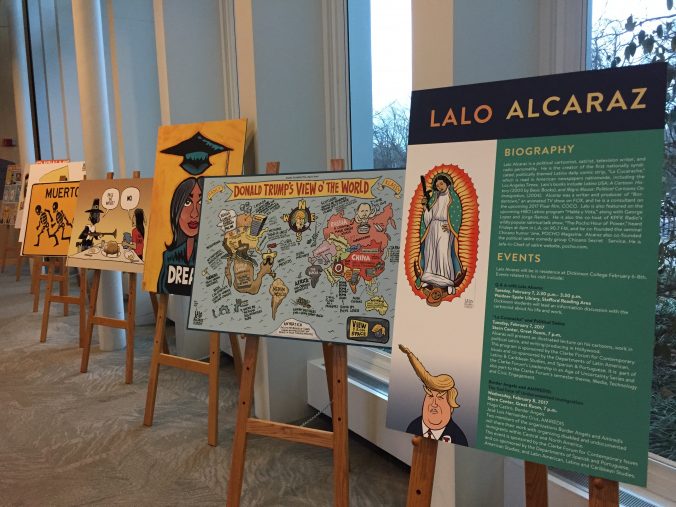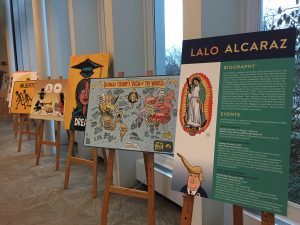Tag: event
A week of events co-sponsored by the Center for Global Study and Engagement; the Latin American, Latino, and Caribbean Studies Program; the Office of Diversity Initiatives; the Community Studies Center; and the departments of Anthropology and History
Monday, October 1, 7 p.m., East College 405
Mbya, tierra en rojo [Mbya, Red Earth or We Are the Indians], 2008. Film presentation followed by Q&A by filmmaker Valeria Mapelman
Tuesday, October 2, 7 p.m., East College 405
Territorio en Resistencia: Indigenous Mobilization in Contemporary Bolivia. Lecture by Bolivian sociologist and social activist Hernán Ávila Montaño
Wednesday, October 3, 7 p.m., East College 405
Octubre Pilagá: Relatos sobre el silencio [Pilagá October: Tales about Silence], 2010. Film presentation followed by Q&A by filmmaker Valeria Mapelman
Thursday, October 4, 7:30 p.m., Althouse 106
Indigenous Latin America: Reclaiming the Past and Building the Future. Roundtable with Valeria Mapelman and Hernán Ávila Montaño. Co-moderated by Professor Maria Bruno and Amanda Wildey (’13)
Valeria Mapelman
After ten years working in photography and film in Chile, Valeria Mapelman returned to her native Buenos Aires in 2010 to co-direct her first feature-length documentary, Mbya, Tierra en Rojo [Mbya, Red Land or We Are the Indians], with Philip Cox. Filmed with the Mbya Guarani communities of the Kuña Pirú Valley, in Northeastern Argentina, this documentary presents an intimate view of the challenges faced by the Mbya Guarani to keep sustainable communities in a hostile sociocultural and political environment. Praised by critics for its complex portrayal of the Myba reality that avoids condescension, this film received the Human Rights Prize at the 2006 Buenos Aires Festival of Independent Cinema. In 2005, she began working with testimonies of survivors of the 1947 massacre in La Bomba, among the Pilagá communities of northeastern Argentina. These testimonies formed the bases of her 2010 film Octubre Pilagá, Relatos sobre el Silencio [Pilagá October: Tales about Silence] and of her collaboration with the Research Network about Genocide and Indigenous Policies in Argentina which resulted in the multi-authored book History of Argentine Cruelty: Julio A. Roca and the Genocide of First Peoples, coordinated by Osvaldo Bayer. She also produced Debates about Genocide of Argentina’s First Peoples and the Limits of Justice, an interactive DVD in collaboration with the Course on Human Rights of the University of Buenos Aires.
Hernán Ávila Montaño
Bolivian sociologist and social activist who has been working with indigenous communities of the Bolivian Amazon since 2001. From 2001-2004, as part of the NGO Centro de Investigación y Promoción del Campesinado (CIPCA), Hernán worked with the communities surrounding the town of San Ignacio de Moxos in the process of defining and legalizing their indigenous lands. In 2005, he began working with the NGO Centro de Estudios Jurídicos e Investigación Social (CEJIS) as an assistant to Miguel Peña, one of five presidents of the Constitutional Congress, in the writing the new Constitution after the election of Evo Morales which defined Bolivia as a plurinational state. He has also worked with the movement of the Indigenous Territory of the Isiboro-Securé (TIPNIS) to protest, and ultimately to stop, the construction of a paved road through this protected region. He is currently the director of CEJIS in Trinidad, where he advises indigenous groups in the Department of Beni on their defense of their territorial and cultural rights. Through this experience, he is considered to be an expert of the new Bolivian Constitution, particularly the components that define the rights and autonomy of indigenous groups to defend and determine the uses of their territories

